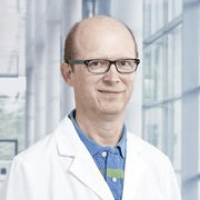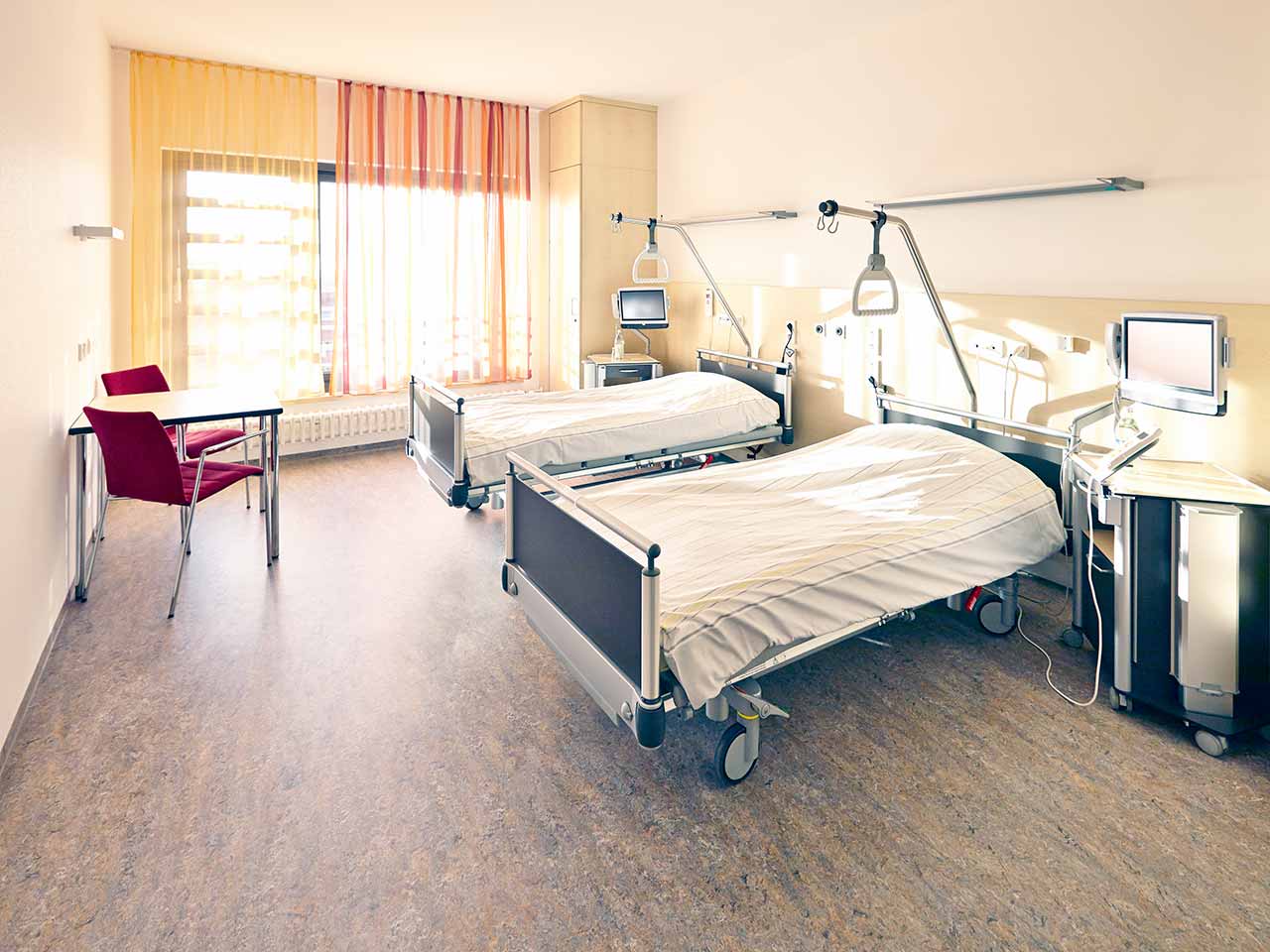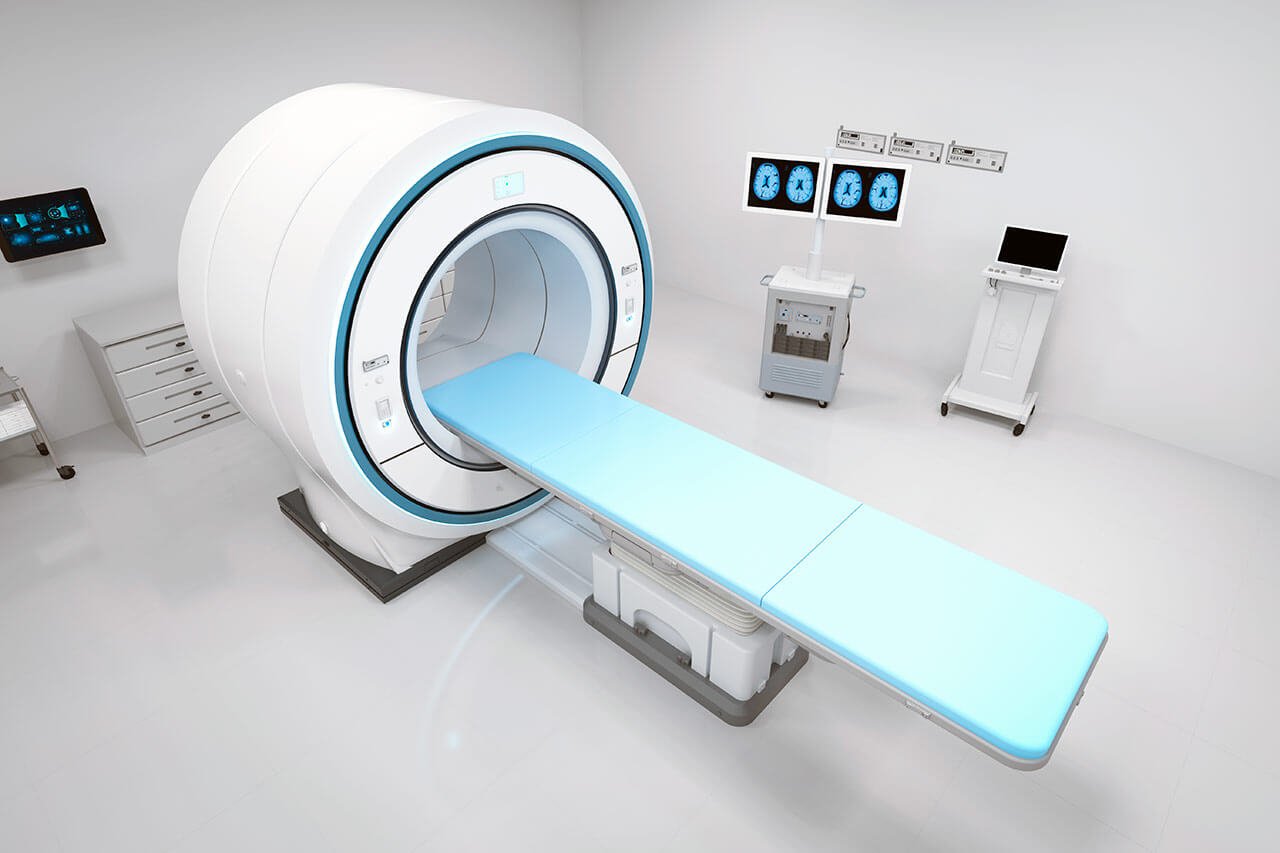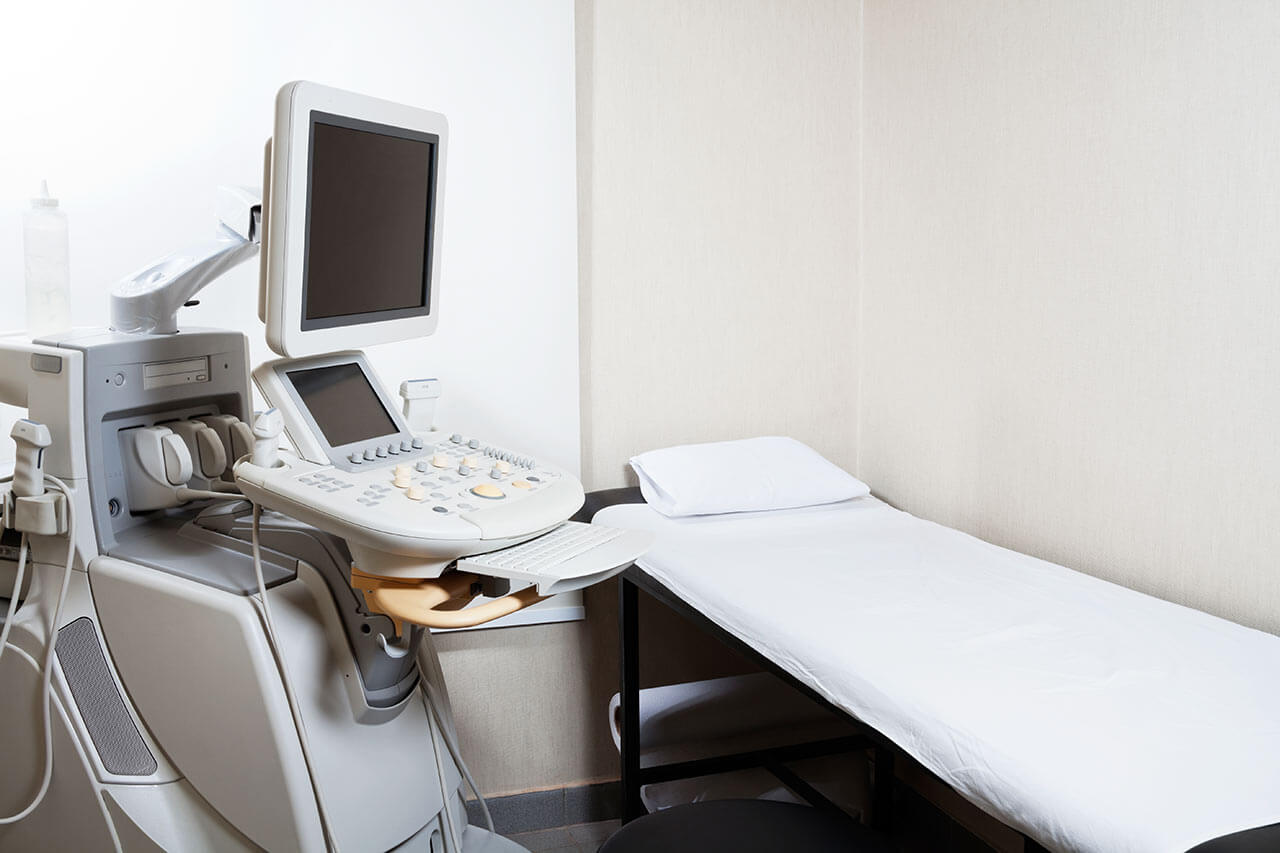
The program includes:
- Initial presentation in the clinic
- clinical history taking
- physical examination
- cardiological examination
- laboratory tests:
- complete blood count
- general urine analysis
- biochemical analysis of blood
- TSH-basal, fT3, fT4
- indicators of inflammation
- indicators blood coagulation
- Cardiological examination
- Measurement of arterial blood pressure, EKG
- Cardiac monitoring (24h)
- ECHO
- Transesophageal echocardiography (TEE)
- nursing services
- full hospital accommodation
- explanation of individual treatment plan
Required documents
- Medical records
- Echocardiography (if available)
Service
You may also book:
 BookingHealth Price from:
BookingHealth Price from:
About the department
The Department of Pediatric Cardiology at the University Hospital Ulm offers the full range of modern diagnostic procedures and treatment methods for young patients with heart diseases. The department is one of the most experienced medical facilities in Germany, specializing in the treatment of congenital heart disease. The department admits young patients with heart rhythm disturbances (arrhythmias), heart failure, cardiomyopathies, inflammatory heart diseases, arterial hypertension, and Marfan syndrome every day. Medical care is provided in close cooperation with radiologists and other physicians in related disciplines. The department's doctors have state-of-the-art diagnostic infrastructure for comprehensive heart examinations of children. The specialists conduct cardiac catheterization, transesophageal echocardiography, stress echocardiography, electrocardiography, cardiac MRI, and other examinations. The department also houses an outpatient clinic, where more than 3,000 young patients receive medical care annually. In cases requiring inpatient treatment, children can be accommodated in rooms with one of their parents. The department also provides round-the-clock emergency cardiac care for children. The department's team of doctors strictly adheres to current clinical protocols in their work, which contributes to high treatment success rates. The department is headed by Prof. Dr. med. Christian Apitz.
Of particular interest to the department's specialists is the treatment of congenital heart disease in children and adults (certified by the German Cardiac Society). The most common of them include atrial septal defect, atrioventricular canal defect, bicuspid aortic valve, coarctation of the aorta, patent ductus arteriosus, patent foramen ovale, tetralogy of Fallot, and ventricular septal defect. As a rule, the specialists detect congenital heart disease in the first days of a child's life, sometimes in the first months. Common symptoms of the heart defect include cyanosis (bluish discoloration of the skin, lips, and fingertips), rapid breathing, and swelling of the legs and abdomen. To diagnose the condition, doctors conduct a comprehensive set of examinations, including echocardiography, electrocardiography, chest X-rays, cardiac magnetic resonance imaging, and cardiac catheterization. The treatment of congenital heart defects in children involves drug therapy and catheter-based interventions. Medicines (antihypertensives, diuretics, antiarrhythmics, etc.) are usually prescribed to relieve symptoms. Catheter-based interventions are successfully performed in the department to repair heart defects. The cardiologist approaches the heart through a femoral artery puncture. One or more catheters are inserted under imaging guidance, and the necessary therapeutic manipulations are performed, for example, the placement of an occluder to close the atrial septal defect or patent foramen ovale.
The department often admits young patients with cardiomyopathy, a whole group of diseases affecting the myocardium. As the disease progresses, the pumping function of the heart deteriorates, which may result in heart failure or sudden cardiac death. The insidiousness of cardiomyopathy is that it may not cause any symptoms. Non-specific symptoms such as shortness of breath, dizziness, fainting, an irregular or rapid heartbeat, chest pain, and fatigue are also often present. The main diagnostic methods for suspected cardiomyopathy are echocardiography and electrocardiography. Sometimes genetic testing may be required. Cardiomyopathy is difficult to treat, but there are effective methods that can be used to bring it under control and provide the child with a high quality of life. First-line treatment is drug therapy with various groups of medications, and in cases of arrhythmia in a child, the placement of an implantable cardioverter-defibrillator may be required.
Another important aspect of the department's clinical practice is the treatment of arrhythmias in children. The disease occurs due to disturbances in the electrical conduction, frequency, or regularity of heart contractions. Symptoms of arrhythmia in a child may include weakness, rapid fatigue, dizziness, fainting, pain behind the sternum and in the heart area, poor appetite, and pallor. Diagnosis begins with the study of the child's medical history and a clinical examination, followed by an instrumental diagnosis that includes electrocardiography, echocardiography, 24-hour Holter monitoring, and an ECG with a stress test. The department's cardiologists select the optimal treatment tactics for the child depending on the type of arrhythmia and its severity. Whenever possible, the specialists only prescribe drugs. In more complex clinical cases, they perform catheter-based procedures, such as radiofrequency ablation, cryoablation, or cardioversion. The last-line treatment is the placement of a pacemaker or implantable cardioverter-defibrillator.
The department's range of medical services includes the following:
- Diagnostics and treatment of congenital heart disease in children and adults
- Diagnostics and treatment of cardiomyopathies
- Diagnostics and treatment of arrhythmias
- Diagnostics and treatment of heart failure
- Diagnostics and treatment of inflammatory heart diseases: Kawasaki disease, endocarditis, and myocarditis
- Diagnostics and treatment of arterial hypertension
- Diagnostics and treatment of Marfan syndrome
- Diagnostics and treatment of pulmonary hypertension
- Diagnostics and treatment of other heart diseases
Curriculum vitae
Prof. Dr. med. Christian Apitz has been the Head Physician of the Department of Pediatric Cardiology at the University Hospital Ulm since 2015. He underwent his professional clinical training in Pediatric Cardiology at the University Hospital Wuerzburg, after which he worked as a Cardiologist in the Department of Pediatric and Adolescent Medicine at the University Hospital Tuebingen. From 2008 to 2009, Prof. Apitz did his internship (focusing on clinical research) at the world-renowned Hospital for Sick Children in Canada. This is the second largest pediatric hospital in the world after Boston Children's Hospital. The doctor then worked in the Department of Pediatric Cardiology at the University Hospital Giessen, where he headed the outpatient clinic specializing in pediatric cardiology and a special outpatient clinic for children and adolescents with pulmonary hypertension.
Prof. Christian Apitz has an EMAH certificate for outstanding services in the treatment of adults with congenital heart disease.
He is a member of the Scientific Committee of the German Society for Pediatric Cardiology (DGPK) and a Co-Founder and Co-Chairman of the German Working Group on Pulmonary Vascular Diseases in Children.
Photo of the doctor: (c) Universitätsklinikum Ulm
About hospital
The University Hospital Ulm is an advanced medical complex that provides patients with high-class medical care using the very latest scientific achievements. The medical facility has been performing successful clinical activities for more than 40 years and has long earned an excellent reputation throughout Europe. The hospital regularly demonstrates high treatment success rates, takes an active part in the training of medical students, and works tirelessly on promising research projects.
The university hospital consists of 29 specialized departments and 16 scientific institutes, where more than 7,000 highly qualified employees work for the benefit of their patients. More than 55,000 inpatients and about 300,000 outpatients are treated here every year. The hospital has 1,274 beds. The medical team of the hospital is focused on providing personalized medical services using the most modern and sparing diagnostic and treatment methods.
The University Hospital Ulm is the largest medical complex in the region, and practically all areas of modern medicine are represented here. Transplantology and oncology are among the priority areas of clinical activity in the medical facility. The hospital holds leading positions in the world in bone marrow transplantation. In addition, the hospital has advanced experience in cancer treatment. The Comprehensive Cancer Center is recognized as the leading facility of this kind in the country, and it is certified by the German Cancer Society (DKG). It provides effective treatment for various types of cancer. The center also offers innovative CAR T-cell therapy. In addition, the Cancer Center is actively engaged in research activities to improve available treatment methods and develop innovative therapeutic techniques to fight cancer.
Along with the use of advanced technologies, doctors show respect, understanding, and a humane attitude toward the patient. The medical team includes competent psychologists, who are always ready to provide assistance and support to the patients and their families during the therapeutic process.
Photo: (с) depositphotos
Accommodation in hospital
Patients rooms
The patients of the University Hospital Ulm live in comfortable single and double rooms with a modern design and light colors. All patient rooms have an ensuite bathroom with a toilet and a shower. The patient room furnishings include a comfortable automatically adjustable bed, a bedside table, a wardrobe, a table and chairs, a telephone, a radio, and a TV. Wi-Fi access is also available in patient rooms.
The hospital also offers enhanced-comfort rooms, which additionally have a safe, a refrigerator, and upholstered furniture. The bathroom in the enhanced-comfort room has changeable towels, a cosmetic mirror, a hairdryer, and toiletries.
Meals and Menus
Patients and their accompanying person are offered three meals a day: breakfast, lunch, and dinner. The patient and accompanying person have a choice of three menus every day, including a vegetarian menu. Patients staying in the enhanced-comfort rooms are also offered light snacks, fruits, desserts, and hot and cold drinks in the comfortable lounge area.
If, for some reason, you do not eat all the foods, you will be offered an individual menu. Please inform the medical staff about your dietary preferences prior to treatment.
Further details
Standard rooms include:
![]() Shower
Shower
![]() Toilet
Toilet
![]() Wi-Fi
Wi-Fi
![]() TV
TV
Religion
The hospital has a chapel where Catholic and Protestant services are held weekly. The services are also broadcast on the internal television channel of the hospital. The chapel is open 24 hours a day for visits and prayers.
The services of other religious representatives are available upon request.
Accompanying person
Your accompanying person may stay with you in your patient room or at the hotel of your choice during the inpatient program.
Hotel
You may stay at the hotel of your choice during the outpatient program. Our managers will support you for selecting the best option.






